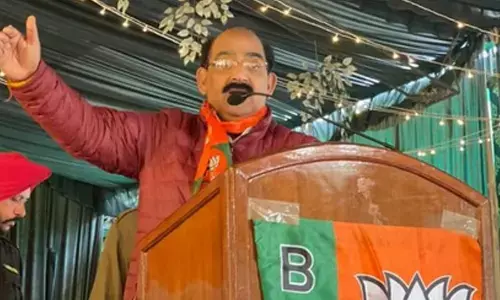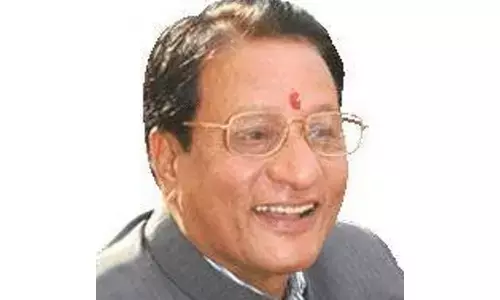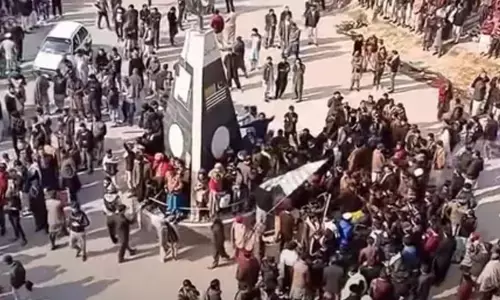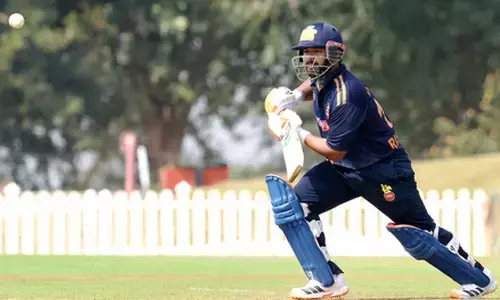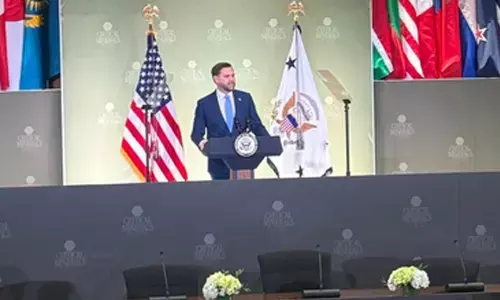AP HC verdict setback to NCM
The recent AP High Court order that struck down compensation given to Muslim youths wrongly arrested for the blasts in Mecca Masjid in Hyderabad in 2007 comes as a setback for National Commission for Minorities (NCM) which had directed the State government to pay compensation to youth who were acquitted from blasts case. In its verdict, the Andhra Pradesh High Court had said there was no legal basis for such compensation, just because the men had been acquitted or discharged in a criminal case.
Venkat Parsa
New Delhi: The recent AP High Court order that struck down compensation given to Muslim youths wrongly arrested for the blasts in Mecca Masjid in Hyderabad in 2007 comes as a setback for National Commission for Minorities (NCM) which had directed the State government to pay compensation to youth who were acquitted from blasts case. In its verdict, the Andhra Pradesh High Court had said there was no legal basis for such compensation, just because the men had been acquitted or discharged in a criminal case.
Talking to The Hans India, Shafeeq Rehman Mahajir, who fought for the Muslim youths release from detention earlier, said, “The compensation was not awarded merely because they were acquitted, but because it was established that they were illegally detained, kept in illegal custody, were tortured and their rights were violated.” This was the first such move by any State to make up for unwarranted terror arrests, that too, on the directions of the NCM. There was a suit filed by the members of civil society, seeking compensation for the affected boys.
There was also an intervention by the NCM, which issued orders to the State government to pay compensation in a specified sum to the affected boys and to thereafter recover the same from the officials found guilty of this illegality that threatened to cause serious damage to the image of the Muslim community, to cause disaffection against the State, and to cause enmity between the two major communities, Hindus and Muslims The NCM was not made a party to PIL. The AP High Court may not have been aware of that, but State government ought to have filed an application to get NCM impleaded. It also ought to have informed NCM of the proceedings, so that it could have moved to become a party if it deemed fit, he said.
Mahajir said, “There was a sustained illegal persecution of youth of the Muslim community, without any basis whatsoever. Much later it came to be appreciated by the authorities that the officers of the police and investigating agencies had carried out a sustained illegal campaign of arrests of youth of the Muslim community and had even tortured them while in illegal custody. A huge public outcry resulted and after it became impossible for the State to brush the facts under the carpet, it realised the enormity of what its rogue officials had done.”
Mahajir said the affected boys ought to have been arrayed as parties eo nomine (by name) before the court. They were not, so the court ought to have directed them to be so made parties, or the State government ought to have filed application to get them impleaded. The petitioner obviously wanted orders behind their back. The principle of audi alteram partem (hear the other side) is a cardinal one among principles of natural justice and this order regarding the rights of those affected accused persons, ought not to have been passed without having them before the court and affording to them an opportunity to contest the petitioner’s claims.
Next Story








